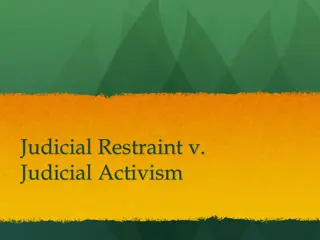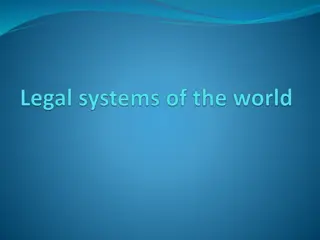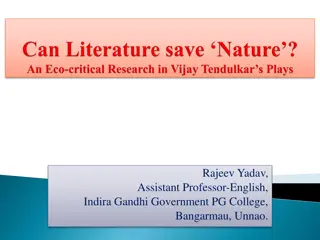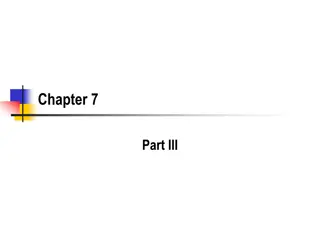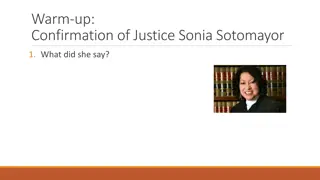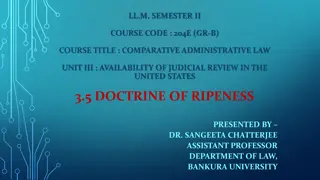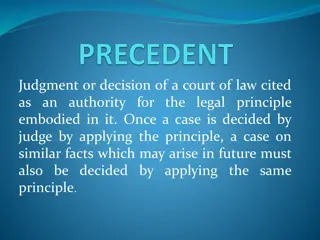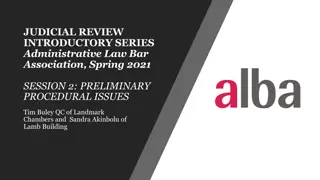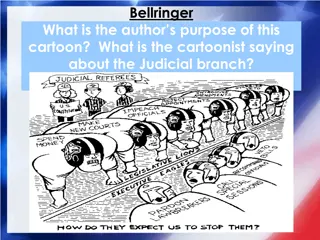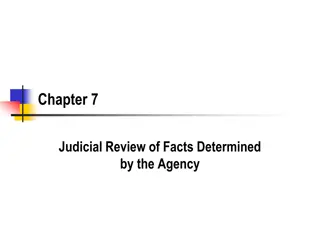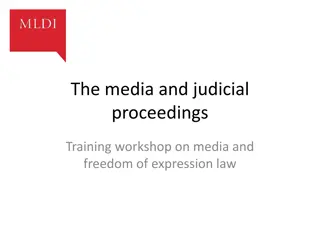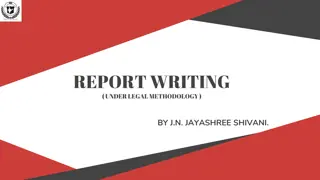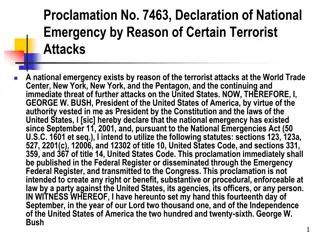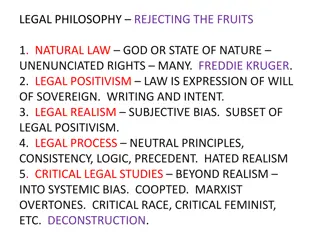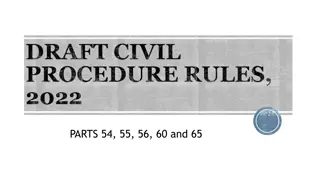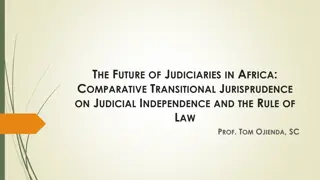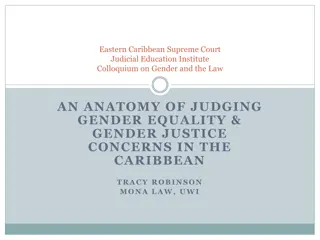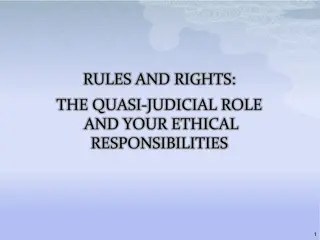Understanding Judicial Activism and Judicial Review in Legal Systems
Judicial activism involves the use of judicial power to benefit society, expanding judicial review to declare laws unconstitutional. The courts need to be active to protect constitutional rights, as the executive and legislative branches may fail in their duties. Judicial activism in India, through PILs, is ensuring access to justice for all. Areas of judicial activism cover various issues like smoking bans, environmental protection, and compensation for rights violations.
Download Presentation

Please find below an Image/Link to download the presentation.
The content on the website is provided AS IS for your information and personal use only. It may not be sold, licensed, or shared on other websites without obtaining consent from the author. Download presentation by click this link. If you encounter any issues during the download, it is possible that the publisher has removed the file from their server.
E N D
Presentation Transcript
JUDICIAL ACTIVISM DR.ASHOK KUMAR SINGH HEAD OF DEPARTMENT(LAW) HCPG COLLEGE, VNS.
THE CONCEPT OF JUDICIAL ACTIVISM Judicial activism refers to the use of judicial power to articulate and enforce what is beneficial for the society in general and people at large. It is power of the Supreme Court and the High Court but not the sub-ordinate Courts to declare the laws as unconstitutional and void. It is expansion of the JUDICIAL REVIEW.
JUDICIAL REVIEW Judicial review is the power of the Courts to pronounce upon the constitutionality of legislative acts which fall within their normal jurisdiction to enforce and the power to refuse to enforce such as they find to be unconstitutional and hence void. It is thus the interposition of judicial restraint on the legislation as well as the executive organs of the Government. This doctrine was first time propounded by the Supreme Court of America in the historic case of Marbury vs. Madison 2LE ED. 60. In Indian Constitution there is an express provision for judicial review in Article 13.
WHY JUDICIAL BODY NEEDS TO BE ACTIVE ? Because the Courts are treated as the saviour of the Constitution. Because the Courts are not expected to sit in an ivory tower like an Olympian closing their eyes uncaring for the problems faced by the society. Because the Courts have to exercise their judicial power for protecting the Fundamental Rights and liberties of citizens of the country. Because Executive and Legislative are apathetic and fail to discharge their Constitutional obligations. Because the bureaucracy shows a total indifference and insensitivity to its mandatory duties. Because the law enforcing authorities shows their brutality in the process of implementation of law.
JUDICIAL ACTIVISM IN INDIA Judicial activism is gaining prominence in the present days. In the form of Public Interest Litigation(PIL), citizens are getting access to justice. The judiciary in India has shed its pro-status-quo approach and taken upon itself the duty to enforce the basic rights of the poor and vulnerable sections of society by progressive interpretation and positive action.
AREAS OF JUDICIAL ACTIVISM Ban on smoking in public place- MURLI S. DEORA VS. UNION OF INDIA AIR 2002 SC 40. Protection against inhuman treatment in jail- SUNIL BATRA VS. DELHI ADMINISTRATION AIR 1980 SC 1759. Child welfare- M.C. MEHTA VS.STATE OF TAMIL NADU AIR 1991 SC 417. Protection of ecology and environmental pollution- RURAL LITIGATION AND ENTITLEMENT KENDRA VS.STATE OF U.P. AIR 1985 (2) SCC 431. Protection of dignity and honour of Courts- DELHI JUDICIAL SERVICE ASSOCIATION VS. STATE OF GUJARAT (1991)4 SCC 406. Rape on working women-VISHAKA VS. STATE OF RAJASTHAN AIR 1997 SC 3011. Power to award compensation under Article 32- RUDAL SHAH VS. STATE OF BIHAR AIR 1983 SCC 141.
CONTINUE. Electoral Reforms- UNION OF INDIA VS. ASSOCIATION FOR DEMOCRATIC REFORMS AIR 2002 SC 2112. Directions to make CBI independent and efficient- VINEET NARAIN VS. UNION OF INDIA AIR 1998 SC 889.
CRITICISM OF JUDICIAL ACTIVISM It is often said that in the name of activism, judiciary often rewrites with personal opinion. The theory of separation of power is overthrown.


